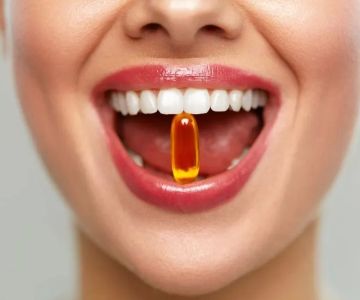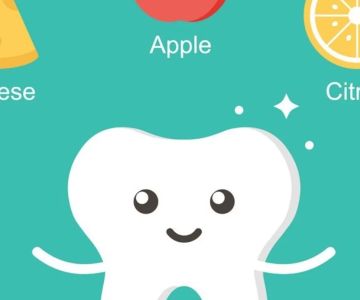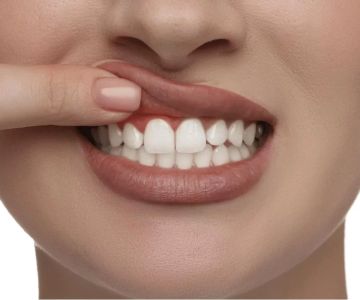Can Diet Soda Cause Oral Cancer? Understanding the Risks and Facts
Diet soda has become a popular alternative to regular soda, especially for those trying to reduce their sugar intake and manage their weight. However, there has been ongoing concern and debate about the potential health risks of diet soda, particularly regarding its impact on oral health and the risk of oral cancer. In this article, we will explore the key components of diet soda, how they may affect your oral health, and whether they could potentially increase the risk of developing oral cancer.
The Main Ingredients in Diet Soda
To understand how diet soda may affect your health, it's essential to first know what goes into these drinks. Diet sodas are typically sweetened with artificial sweeteners like aspartame, sucralose, or saccharin instead of regular sugar. These ingredients are hundreds of times sweeter than sugar and contain little to no calories. While these sweeteners are approved by regulatory bodies like the FDA, their long-term effects on health have been questioned by some health professionals.
Besides artificial sweeteners, diet sodas also contain carbonation, acids, and flavoring agents. Carbonic acid, the substance responsible for the fizz in soda, can be harmful to the enamel of your teeth. Similarly, the acidity of diet sodas, even though lower than regular sodas, can erode the enamel over time, making your teeth more susceptible to decay and other oral health issues.
The Link Between Diet Soda and Oral Cancer
One of the main concerns surrounding diet sodas is whether their ingredients, especially artificial sweeteners, could increase the risk of developing oral cancer. Aspartame, one of the most common sweeteners used in diet sodas, has been a subject of controversy for many years. Some studies have suggested a potential link between aspartame and cancer, but the evidence remains inconclusive. In fact, a large body of research, including studies conducted by the National Cancer Institute, has shown no definitive evidence that aspartame causes cancer in humans.
Despite the lack of clear evidence, some researchers and health experts argue that regular consumption of artificial sweeteners may lead to changes in gut bacteria, metabolic changes, and even inflammation, which could potentially increase the risk of various health conditions, including cancer. However, it’s important to note that there are no direct studies linking diet sodas specifically to oral cancer.
Impact of Diet Soda on Oral Health
While the link between diet soda and oral cancer is still being debated, one thing is certain: diet sodas can negatively affect your oral health. The acidity of diet sodas can contribute to enamel erosion, which makes your teeth more vulnerable to cavities and other forms of decay. As the enamel wears down, the dentin beneath becomes exposed, leading to increased sensitivity and a greater risk of cavities.
In addition to enamel erosion, the artificial sweeteners used in diet sodas can also alter the balance of bacteria in your mouth. While artificial sweeteners may not directly cause cavities, some research suggests they could encourage the growth of harmful bacteria that contribute to tooth decay and gum disease. Furthermore, diet sodas can also dry out your mouth, leading to reduced saliva production. Saliva is essential for neutralizing acids and protecting your teeth from decay, so when the mouth is dry, your risk for oral health problems increases.
The Role of Diet Soda in Cancer Development
Even though there is no direct evidence that diet soda causes oral cancer, some experts suggest that the acids and chemicals in these drinks may contribute to the development of cancer in other parts of the body. For example, the acidity in diet sodas could potentially cause irritation and inflammation in the throat and mouth, which over time could contribute to the development of conditions that may lead to cancer.
Additionally, there is concern about the long-term effects of consuming diet sodas regularly. Studies have shown that long-term consumption of highly acidic or carbonated beverages can increase the risk of developing cancers in the digestive system, such as esophageal or stomach cancer. While these studies typically do not focus on diet soda specifically, the similarity in acidic content and carbonation suggests that diet sodas could contribute to similar risks.
Moderation is Key
As with many things in life, moderation is crucial when it comes to diet soda consumption. While there is no concrete evidence linking diet sodas to oral cancer, their potential effects on your teeth and overall oral health should not be overlooked. If you choose to consume diet soda, it’s important to do so in moderation and take steps to protect your oral health.
To mitigate the potential risks of drinking diet soda, consider drinking it through a straw to reduce contact with your teeth, rinse your mouth with water after drinking, and maintain a regular oral hygiene routine. Brushing your teeth twice a day, flossing daily, and visiting your dentist regularly are essential habits for maintaining optimal oral health and minimizing the potential negative effects of diet soda.
Conclusion: Is Diet Soda Worth the Risk?
In conclusion, while there is no definitive evidence linking diet soda directly to oral cancer, its impact on oral health is clear. The acidity and artificial sweeteners in diet sodas can contribute to enamel erosion, tooth decay, and other oral health issues. While occasional consumption of diet soda is unlikely to cause significant harm, regular and excessive consumption can increase the risk of long-term oral health problems.
Ultimately, it's important to be mindful of your diet soda consumption and take measures to protect your oral health. If you are concerned about the potential risks of diet soda, consider speaking with your dentist or healthcare provider for personalized advice. If you’re looking to reduce your sugar intake or stay hydrated, there are many healthier beverage options available that won’t compromise your oral health.







 Gentle Dental Clackamas Town Center4.0 (167 review)
Gentle Dental Clackamas Town Center4.0 (167 review) Dr. Sharon Freeland Harris, DMD5.0 (256 review)
Dr. Sharon Freeland Harris, DMD5.0 (256 review) Absolute Dental - Flamingo4.0 (582 review)
Absolute Dental - Flamingo4.0 (582 review) Magna Dental4.0 (675 review)
Magna Dental4.0 (675 review) Pacer Dental P.C.4.0 (130 review)
Pacer Dental P.C.4.0 (130 review) Dr. Mark R. Fiss, DMD5.0 (2 review)
Dr. Mark R. Fiss, DMD5.0 (2 review) The Importance of Oral Health Education During Pregnancy for a Healthy Pregnancy
The Importance of Oral Health Education During Pregnancy for a Healthy Pregnancy Best Tips for Brushing Your Teeth Properly for Healthy Gums: Essential Techniques for Oral Health
Best Tips for Brushing Your Teeth Properly for Healthy Gums: Essential Techniques for Oral Health Why Skipping Dental Checkups Can Lead to Bigger Oral Health Problems
Why Skipping Dental Checkups Can Lead to Bigger Oral Health Problems Advantages of Porcelain Dental Restorations
Advantages of Porcelain Dental Restorations How Can Diabetes Cause Tooth and Gum Problems? Preventing and Managing Oral Health Issues
How Can Diabetes Cause Tooth and Gum Problems? Preventing and Managing Oral Health Issues Healthy Habits for Promoting Good Oral Health and Hygiene: Tips for a Healthy Smile
Healthy Habits for Promoting Good Oral Health and Hygiene: Tips for a Healthy Smile